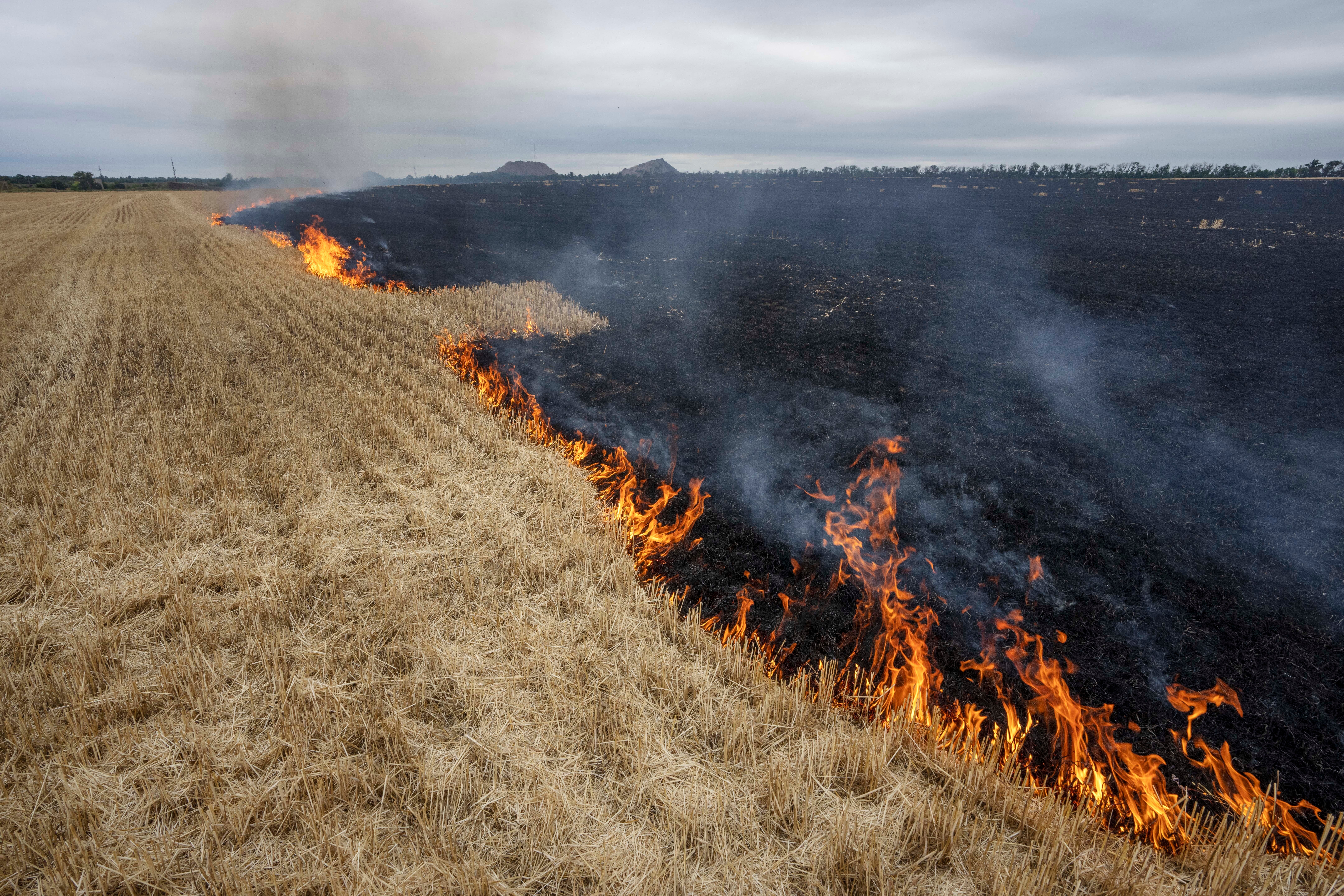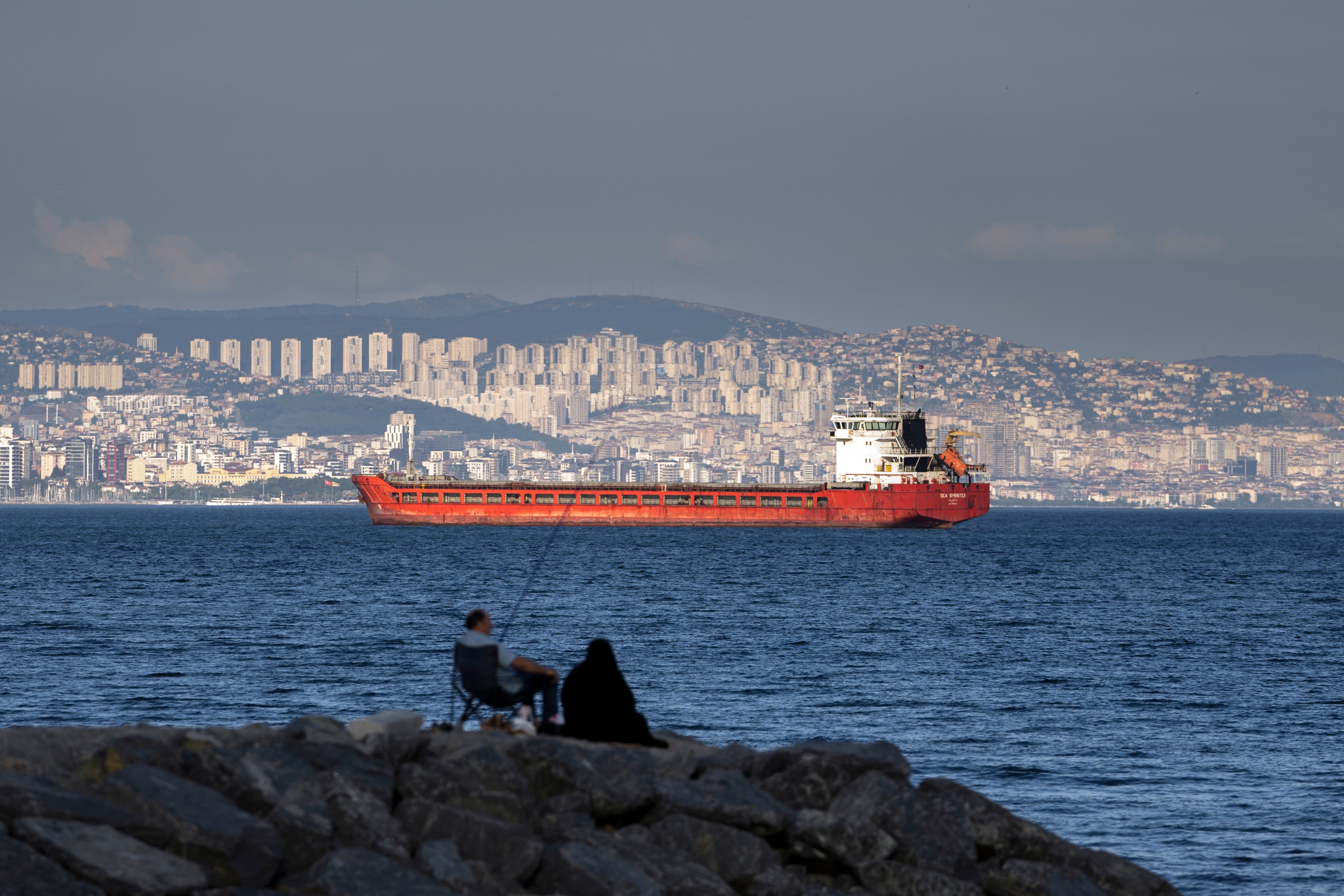‘Billions’ will avoid famine says Erdogan as Ukraine and Russia sign grain deal
The UN and Turkey’s president are due to oversee the signing of the deal

Russia and Ukraine on Friday signed a landmark agreement to allow grain shipments to resume through the Black Sea, boosting hopes that a global food crisis can be averted.
UN secretary general Antonio Guterres and Turkish president Recep Tayyip Erdogan oversaw the signing of an agreement that would allow Ukraine to resume its shipments and Russia to export grain and fertilizers, potentially ending a standoff that has threatened world food security.
Speaking after the agreement was signed in Istanbul, President Erdogan said the deal would “prevent billions of people from facing famine”.
He added that he hoped the deal “will hopefully revive the path to peace”.
Mr Guterres said: “Today, there is a beacon on the Black Sea. A beacon of hope... possibility... and relief in a world that needs it more than ever.”
He added that the deal would allow food exports from three key Ukrainian ports, Odesa, Chernomorsk and Yuzhny.
Ukraine and Russia signed “mirror deals” as Kyiv refused to sign a direct deal with Moscow. Ukraine also warned “provocations” would be met with “an immediate military response”.
Russia’s defence minister Sergei Shoigu said his could would not take advantage of the deal.
The United Nations said it expects the deal to be fully operational in a few weeks and restore shipments to the pre-war levels of five million tonnes a month, two senior officials said on Friday.
“We are looking at a very quick rate of implementation,” one of the officials said.
Under the plan, Ukrainian officials will guide ships through safe channels across mined waters to three ports, including the major hub of Odesa, where they will be loaded with grain.
Ships will then exit Ukrainian territorial waters in the Black Sea, transit the Bosphorus strait to a Turkish port for inspection and later head to their destinations. The deal will initially be valid for 120 days.
Britain has backed the signing of the agreement. Outgoing prime minister Boris Johnson, in a phone call toUkrainian President Volodymyr Zelensky on Friday “weclomed” the agreement but “stressed the need for the deal to be implemented in full”.
Russia’s invasion of Ukraine in February has left millions at risk of hunger. It has also caused food prices to soar as much of the grain remains stuck in Ukraine.
Collectively, Russia and Ukraine are responsible for more than a quarter of global wheat exports and for around 80 per cent of the world’s supply of sunflower oil.
Russia, along with ally Belarus, is also a huge source of fertiliser, accounting for around 15 per cent globally.
Last week, the sides reached a tentative agreement on a UN plan that would enable Ukraine to export 22 million tons of desperately needed grain and other agricultural products that have been stuck in Ukraine's Black Sea ports due to the war.
The unblocking of the grain stockpiles will help ease a food crisis that has sent prices of vital commodities like wheat and barley soaring.

The deal will establish a control centre in Istanbul, to be staffed by UN, Turkish, Russian and Ukrainian officials, which would run and coordinate the grain exports, officials have said. Ships would be inspected to ensure that they are carrying grains and fertilizer and not weapons. It also makes provision for the safe passage of the ships.
Mr Guterres first raised the critical need to get Ukraine's agricultural production and Russia's grain and fertiliser production back into world markets during meetings with Russian president Vladimir Putin in Moscow and Ukrainian president Volodymyr Zelensky in Kyiv in late April.
He proposed a package deal in early June amid fears that the war is endangering food supplies for many developing nations and could worsen hunger for up to 181 million people.
Forecasts supplied exclusively to The Independent in May showed that Russia’s brutal campaign, including its blockade of vital Ukrainian ports, caused even deeper disruption to food supplies than was previously feared.
The estimates, compiled in collaboration with Ukraine’s agriculture ministry, threatened global food supply chains, which imperilled the lives of millions of people in regions such as East Africa, which is heavily reliant on Russian and Ukrainian grain imports.
It also put up prices for consumers in the UK, who are already facing a cost of living crisis that threatens to push 1.3 million people into absolute poverty.
Ukraine is one of the world's largest exporters of wheat, corn and sunflower oil, but Russia's invasion and a blockade of its ports have halted their shipment.
Some of the grain is being transported through Europe by rail, road and river, but the amount is small compared with sea routes.
Russian and Ukrainian officials have blamed each other for the blocked grain shipments. Moscow accused Ukraine of failing to remove sea mines at the ports to allow safe shipping. Russia has also insisted on its right to check incoming ships for weapons.

Ukraine has sought international guarantees that the Kremlin wouldn't use the safe corridors to attack the Black Sea port of Odesa. Ukrainian authorities have also accused Russia of stealing grain from its eastern regions to sell, and deliberately shelling Ukrainian fields to set them on fire.
On Thursday evening, a spokesman for Ukraine's foreign ministry appeared to lay out Kyiv's conditions for backing the plan.
Oleh Nikolenko told reporters that Ukraine's delegation “will support only those decisions that will guarantee the security of the southern regions of Ukraine, the strong position of the Armed Forces of Ukraine in the Black Sea and the safe export of Ukrainian agricultural products to world markets”.
In Washington, State Department spokesman Ned Price said the US welcomes the agreement in principle.
“But what we're focusing on now is holding Russia accountable for implementing this agreement and for enabling Ukrainian grain to get to world markets. It has been for far too long that Russia has enacted this blockade,” Mr Price said.






Join our commenting forum
Join thought-provoking conversations, follow other Independent readers and see their replies
Comments